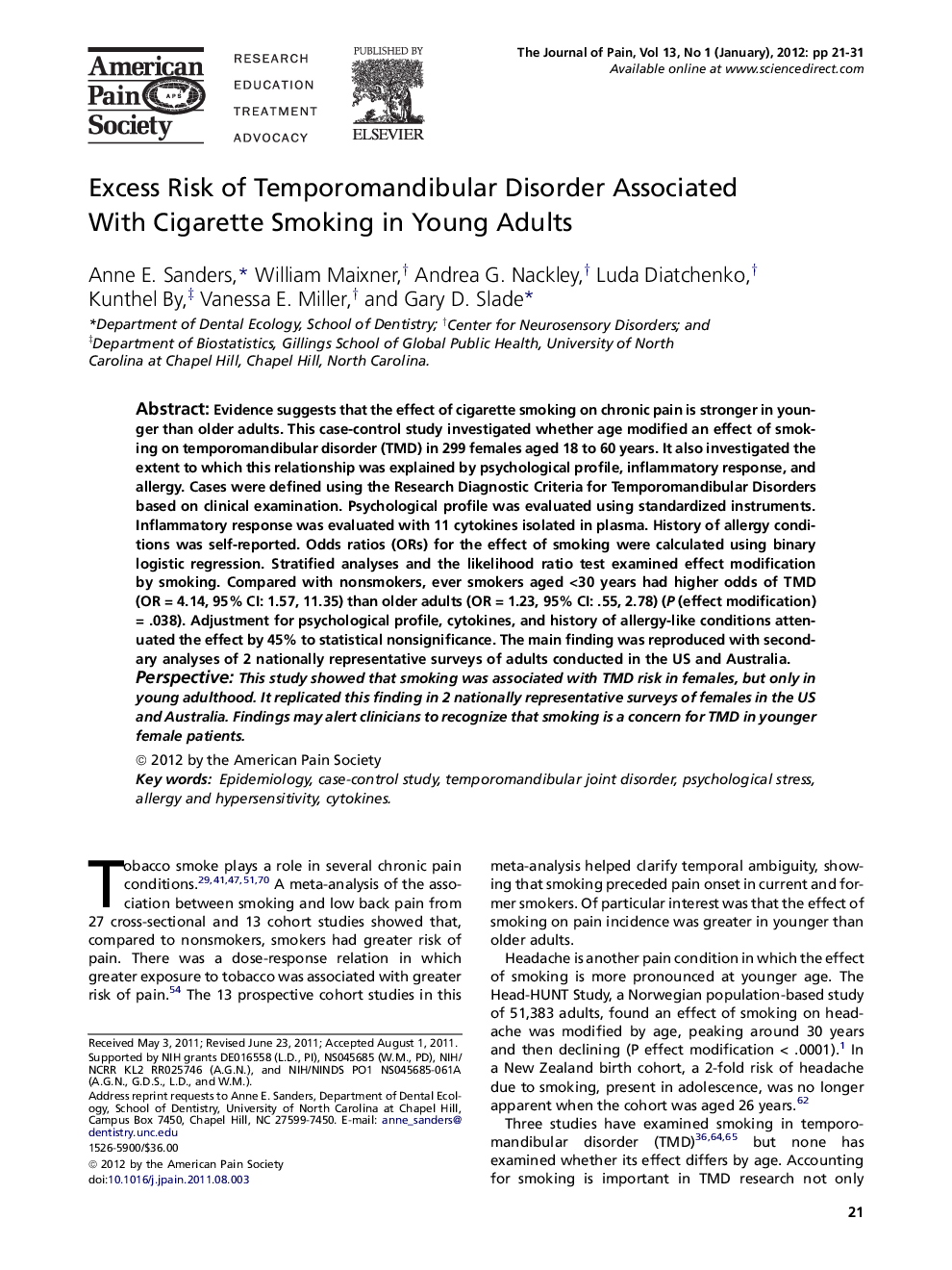| Article ID | Journal | Published Year | Pages | File Type |
|---|---|---|---|---|
| 2728935 | The Journal of Pain | 2012 | 11 Pages |
Evidence suggests that the effect of cigarette smoking on chronic pain is stronger in younger than older adults. This case-control study investigated whether age modified an effect of smoking on temporomandibular disorder (TMD) in 299 females aged 18 to 60 years. It also investigated the extent to which this relationship was explained by psychological profile, inflammatory response, and allergy. Cases were defined using the Research Diagnostic Criteria for Temporomandibular Disorders based on clinical examination. Psychological profile was evaluated using standardized instruments. Inflammatory response was evaluated with 11 cytokines isolated in plasma. History of allergy conditions was self-reported. Odds ratios (ORs) for the effect of smoking were calculated using binary logistic regression. Stratified analyses and the likelihood ratio test examined effect modification by smoking. Compared with nonsmokers, ever smokers aged <30 years had higher odds of TMD (OR = 4.14, 95% CI: 1.57, 11.35) than older adults (OR = 1.23, 95% CI: .55, 2.78) (P (effect modification) = .038). Adjustment for psychological profile, cytokines, and history of allergy-like conditions attenuated the effect by 45% to statistical nonsignificance. The main finding was reproduced with secondary analyses of 2 nationally representative surveys of adults conducted in the US and Australia.PerspectiveThis study showed that smoking was associated with TMD risk in females, but only in young adulthood. It replicated this finding in 2 nationally representative surveys of females in the US and Australia. Findings may alert clinicians to recognize that smoking is a concern for TMD in younger female patients.
